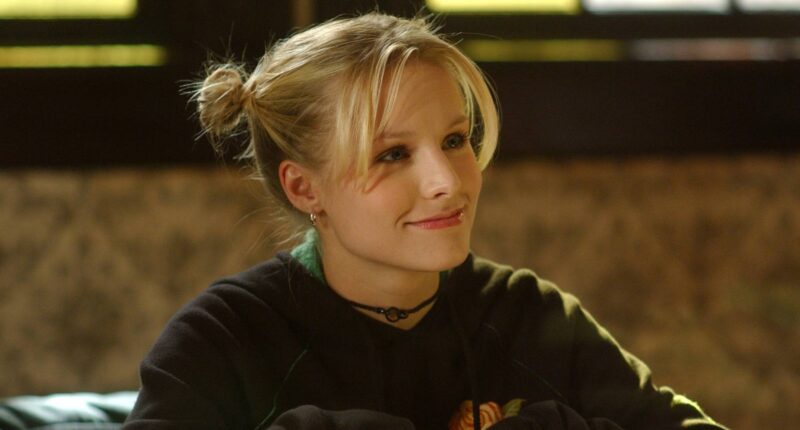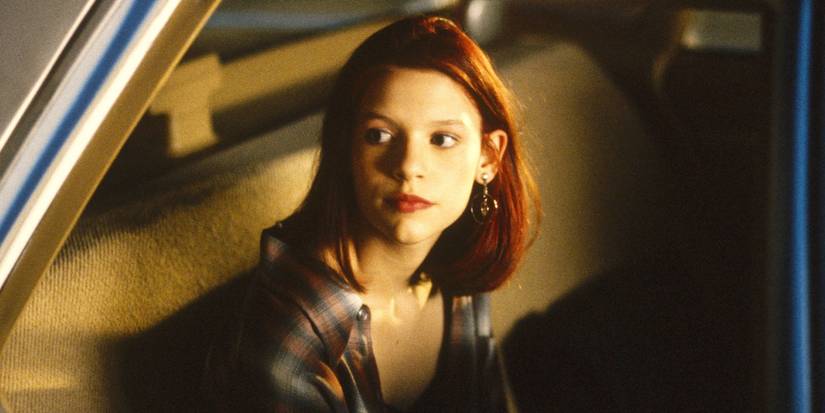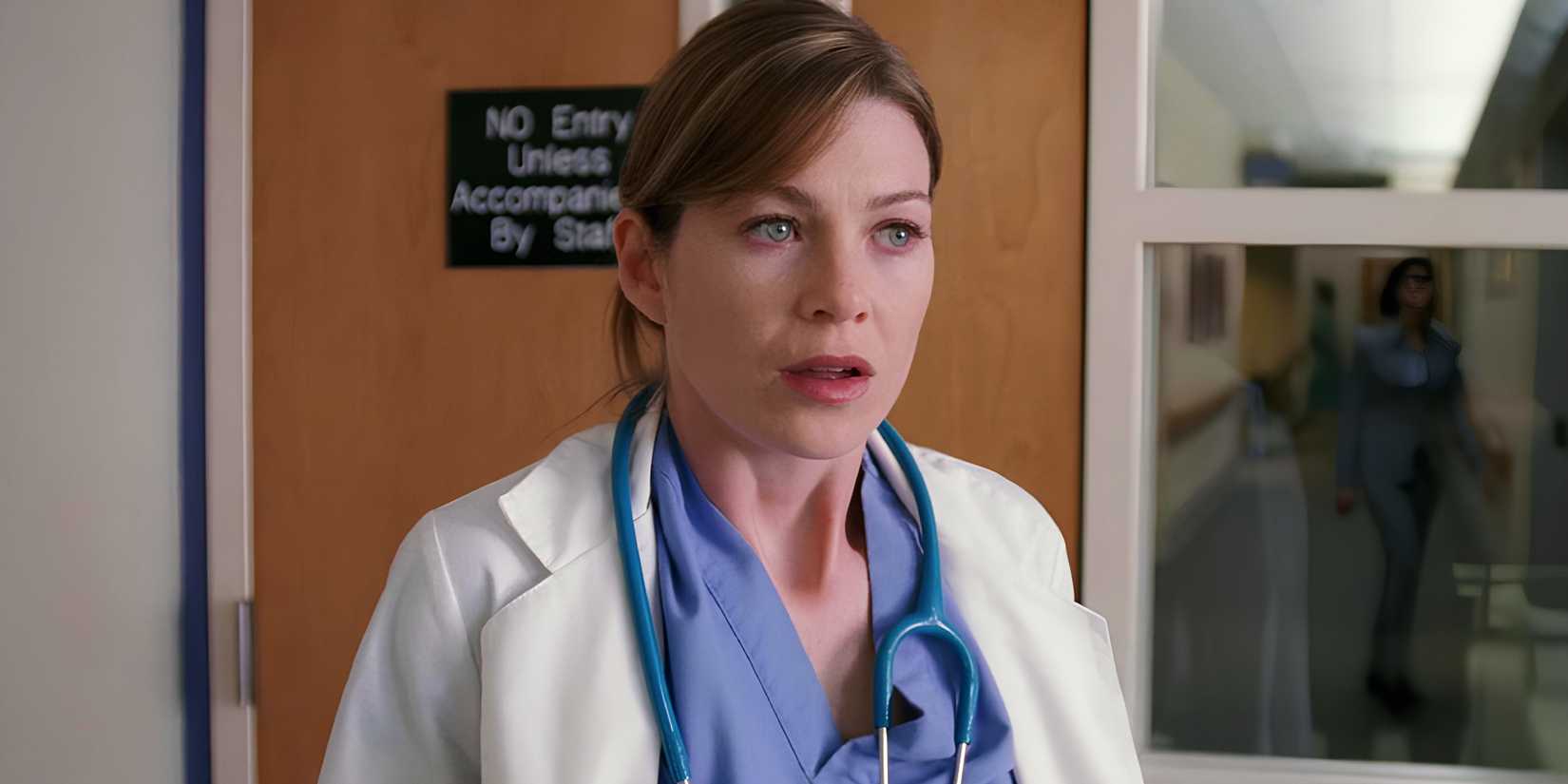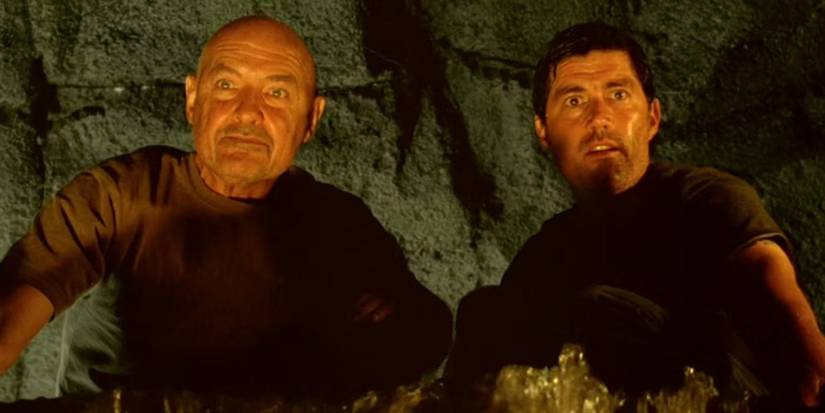There are plenty of TV shows and movies about Millennials that try to capture the sensibilities of the generation, but the TV series that shaped their childhoods and young adult years are just as important. Whether they were canceled too soon, genuinely terrifying, or cringeworthy upon reexamination, these projects all did their fair share of traumatizing the audiences who watched them during their formative years.
Much like the movies that traumatized Millennials, these series are distinctly of their time, which isn’t necessarily a bad thing, but does instantly transport the viewer back to the 1990s or early 2000s when revisiting them. However, this doesn’t make it any less fun or nostalgic to return to these projects, even if it is through the lens of their flaws and pitfalls.
My So-Called Life (1994–1995)
Clare Danes’ breakout role in the teen drama My So-Called Life not only helped push her career forward, but it was also a revolutionary addition to the genre. Tackling the coming-of-age genre with more nuance and respect than its predecessors, it was deeply upsetting for a generation of audiences to see it canceled after season 1 despite its long-term potential.
My So-Called Life is a 1990s TV show that’s a cult classic today, as even though it’s of its time, many of the challenges that Angela faces are just as relevant today. If it had gone on for additional seasons, it’s likely that My So-Called Life would be even better remembered today, and fans wouldn’t be heartbroken over its too-short run.
The O.C. (2003–2007)
Set against the backdrop of the wealthy and idyllic landscape of Orange County, California, The O.C. fueled viewers’ dreams of a sun-soaked and romantic version of Southern California. However, the characters in the series were constantly grappling with over-the-top situations and melodrama, leading to some of the most jaw-dropping moments in the history of the teen soap genre.
There were plenty of lightly traumatizing moments throughout the early seasons of The O.C., as the show contended with the high drama of its characters, but many Millennials will always remember where they were when Marissa Cooper was killed off in The O.C. season 3. Losing Marissa wasn’t just devastating; it changed the course of the show and made the audience lose faith in the teen drama.
Veronica Mars (2004–2019)
Though the 2019 reboot of Veronica Mars shocked audiences and put the adult Veronica through some of her toughest challenges yet, the teen crime drama was intense from the very beginning. Kristen Bell made a splash as the high schooler with a knack for private investigation, but as the audience learned more about Veronica’s dark past, Veronica Mars became hard to watch.
Touching upon serious themes of grief, loss, assault, and conspiracy, Veronica Mars never held back when it came to traumatizing its titular character, and by extension, the audience. In some ways, the series’ ability to handle these heavy subjects was impressive. This has helped the show remain relevant. However, it can also have a lasting effect on viewers who watch the series before they’re ready.
Grey’s Anatomy (2005–Present)
Premiering in 2005, Grey’s Anatomy is a staple not just of Millennial childhoods and early TV experiences, but of anyone who’s been watching television in the 21st century. Notable for its focus on the personal and romantic lives of doctors as well as the cases and bureaucracy of hospitals, as Grey’s Anatomy progressed, the series has become associated with its most traumatic episodes.
Grey’s Anatomy‘s darkest medical cases crossed the line, giving many viewers plenty of medical anxiety, but the real trauma came from the horrible events the doctors went through. The show has used shootings, plane crashes, mass casualty events, and more as plot devices, and viewers quickly learned that in a show like Grey’s Anatomy, no character is safe, so it’s best not to get too attached to anyone.
Hey Arnold! (1996–2004)
Hey Arnold! is a classic children’s cartoon for a reason. From its distinctive art style to the vivid characters that young audiences fell in love with, Hey Arnold! was a relatively light animated series for the most part. However, there were some episodes that broke the formula and delved into scary or serious territory, shocking the kids tuning into the show.
In the episode “Abner Comes Home/The Sewer King,” Hey Arnold! introduces one of the most memorable and slightly traumatizing cartoon villains of the 1990s, the titular Sewer King. The show was known for touching upon urban legends and examining how growing up in a city can feel magical and otherworldly, which can easily turn into a little bit terrifying, especially in an episode set in the sewer system.
Lost (2004–2010)
Lost is an iconic TV show that’s defined by what it did well as much as what it failed at. Beginning with one of the best pilot episodes of all time, and ending with a series finale that is hotly debated to this day, Lost has a mixed legacy. However, this doesn’t stop us from dissecting the impact of this twisting narrative on audiences who grew up watching Lost.
As the best mystery box TV show of all time, it’s not surprising that Lost relied on its plot twists and unanswered questions to keep the audience interested in the story. However, things started getting out of hand as Lost progressed, as the series went off the rails. Even if the characters in Lost weren’t dead the whole time, the way the series disappointed viewers still stings.
Goosebumps (1995–1998)
There are plenty of great horror TV shows meant for all generations of viewers, but Goosebumps was a children’s series that genuinely scared audiences. Based on the iconic book series by R.L. Stine, Goosebumps adhered to the style and tone of the stories that Stine penned, which delved into some genuinely terrifying situations that stayed with younger viewers for years to come.
Of course, revisiting Goosebumps as an adult might reveal that the special effects and chilling atmosphere of the show aren’t quite as thrilling as they were in childhood, but that doesn’t mean the episodes weren’t impactful to the kids watching in the ’90s. Since Goosebumps centered on the experiences of children and tweens, it was easy for kids to believe that the onscreen events could come to pass.
Glee (2009–2015)
The empire of iconic television shows created or produced by Ryan Murphy has grown exponentially since Glee premiered in 2009, but the musical dramedy TV show will always be connected to the filmmaker. Though Glee is a satire and attempts to poke fun at the pitfalls of teen dramas, there are some elements of the series that haven’t aged well and are a bit “cringey” today.
Audiences who don’t like musical theater or spontaneous dance numbers might not remember Glee fondly. However, the real reason that some might consider watching Glee traumatic is because of how the series constantly crossed the line in its comedy, writing dialogue that borders on offensive at times. While this is typically played for laughs, it can be jarring to look back on today.
Degrassi (2001–2015)
When it comes to teen drama soaps, Degrassi might take the top spot for most unbelievable. Featuring plenty of familiar faces from Drake to Nina Dobrev, Degrassi touched upon some serious, adult topics throughout its long run, unafraid to spark controversy among its viewers and push the characters to their breaking points. Degrassi thrived on its shock factor.
Part of the reason that Millennials might look back on Degrassi and remember some traumatizing moments is that the series didn’t always handle its subjects with the most delicacy. However, even if some of the episodes that read like after-school specials are a little heavy-handed in their portrayals of teenage life, Degrassi spoke to a generation of kids who could identify with the emotional upheaval they saw onscreen.


















